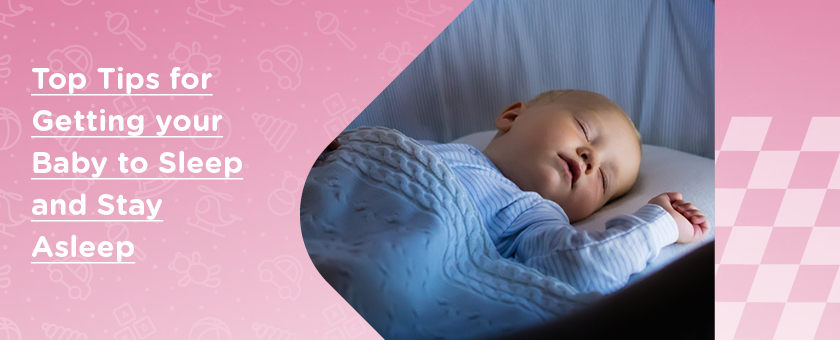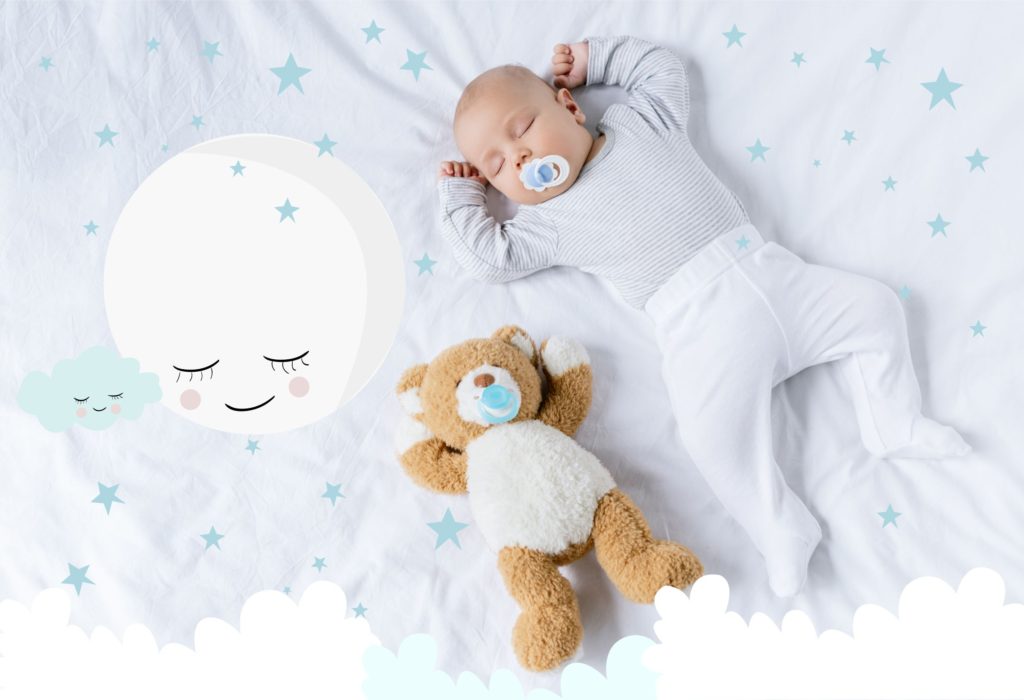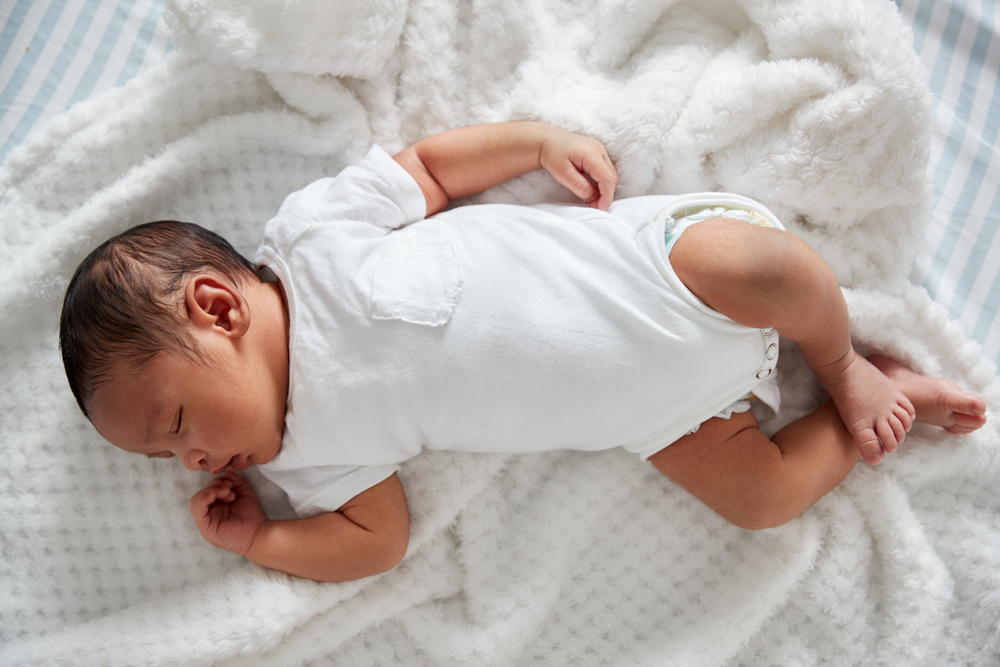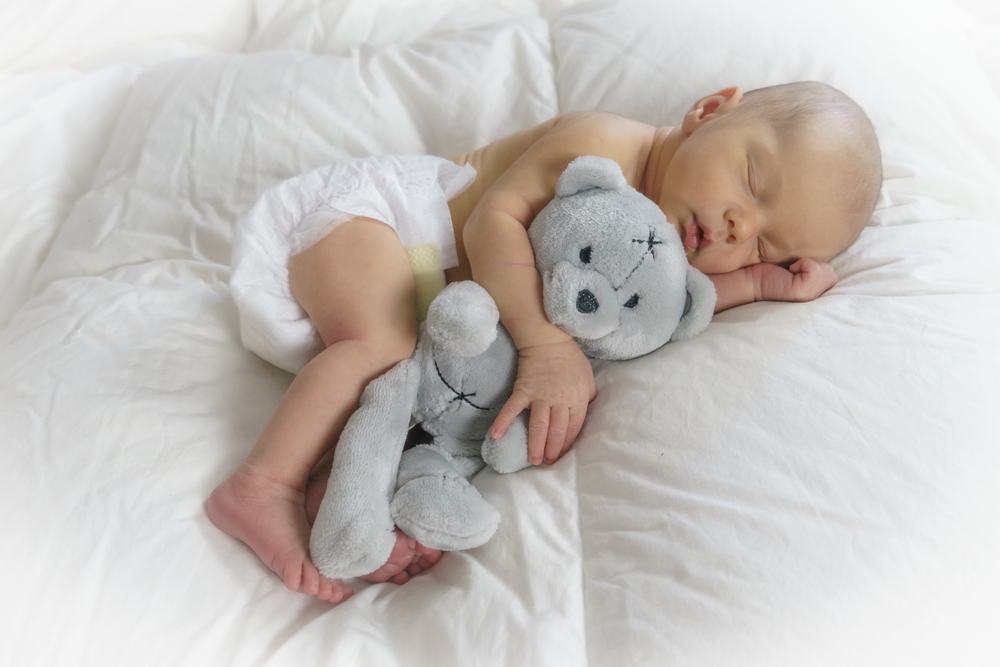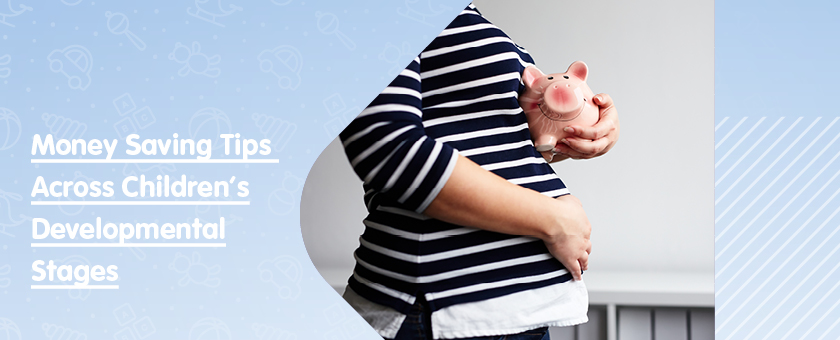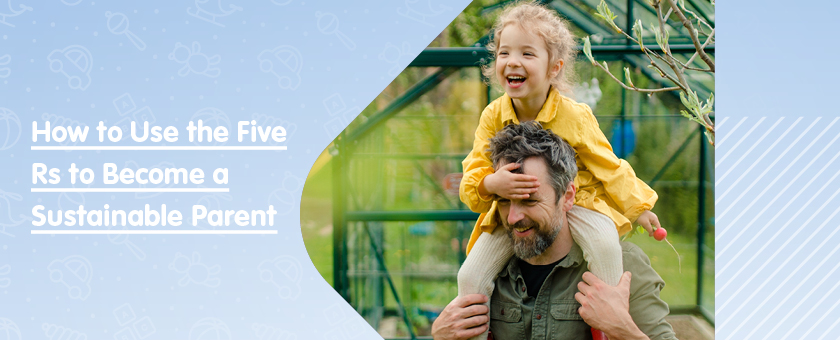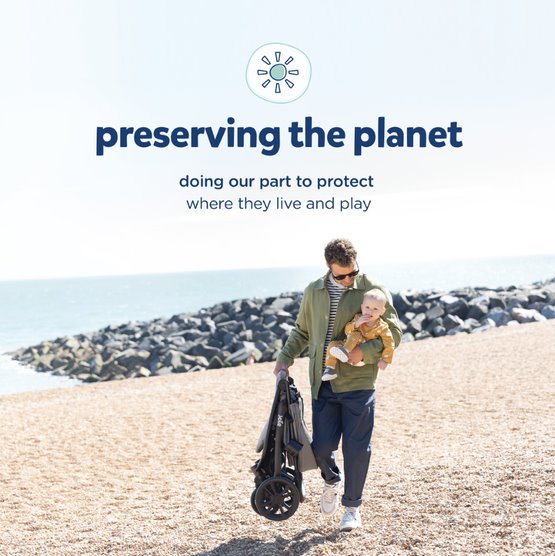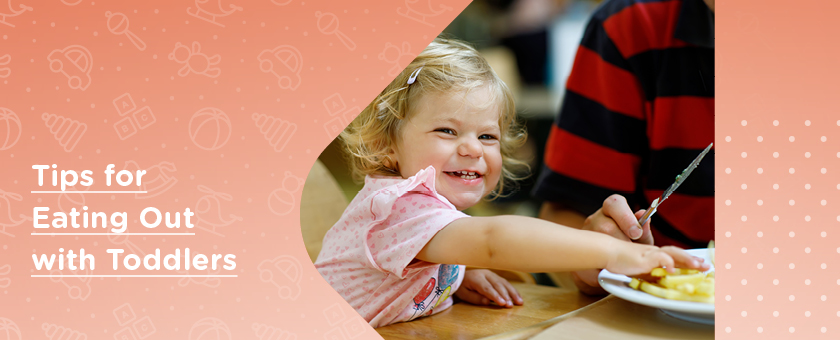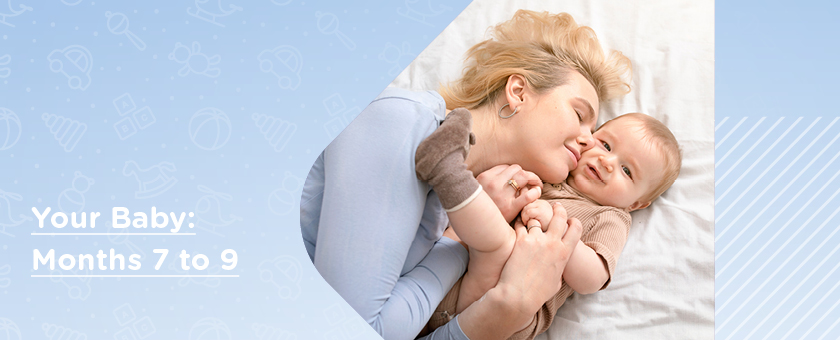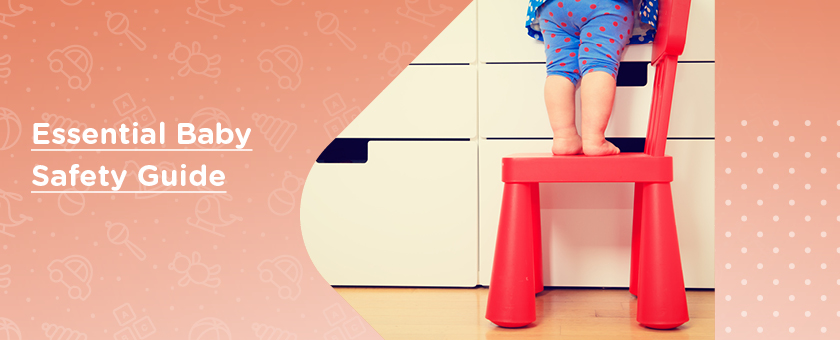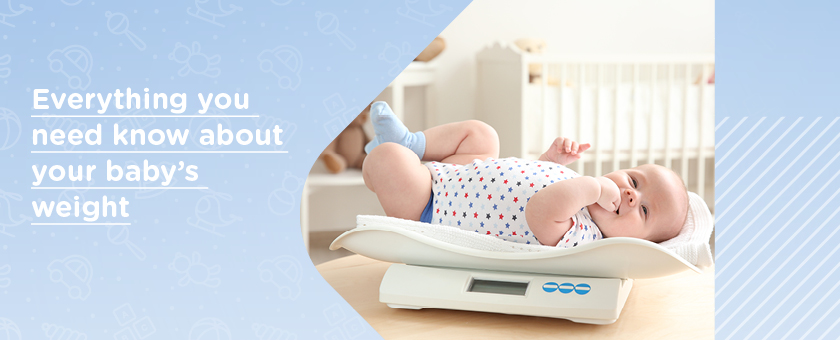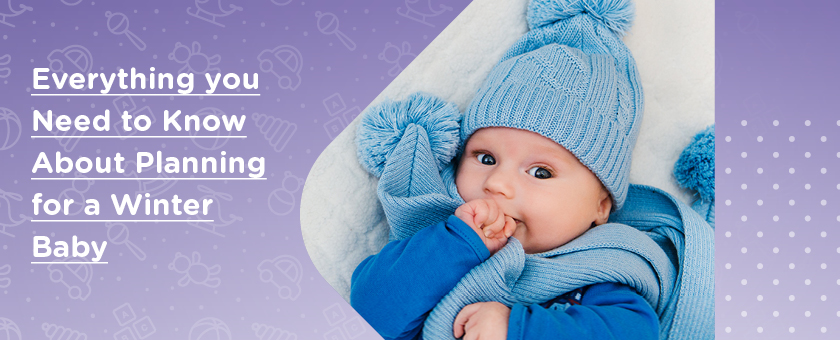Why won’t my baby sleep? The question you’ll find every new parent asking – so don’t worry, you’re not alone! Just after you’ve finally mastered the bedtime routine, your little one decides to throw you a curve ball – the dreaded night-time waking!
Here comes the eternal question – how to get my baby to sleep and stay asleep? Sadly, there isn’t a magic cure. We understand it can feel like mission impossible sometimes, but you shouldn’t feel bad if you haven’t quite cracked it – there’s no one-size-fits-all approach, and every baby is different.
Thankfully, we have some great tips on getting your baby to sleep and how to help them stay asleep through the night.
How much should a baby sleep?
Just like us, little ones sleeping patterns tend to vary. From birth, some babes will need more or less sleep than others. Below, we’ll break down the average amount of sleep babies need over the period of a day according to the NHS (including daytime naps):
Newborns
Most teeny tinies spend more of their time snoozing than being awake. Their total daily sleep will differ, but it can be anything from 8 hours to 16/18 hours. Little ones will, of course, wake up during the night because they’ll need to be fed. As well as this, being too hot or too cold can also spoil their peaceful slumber, and often they wake to look for comfort from their parents.
3-6 months old
As your cherub grows, they won’t need as many night feeds and will be able to snooze away for longer. Some little ones will be able to sleep for 8 hours or longer at night – but it’s important to remember that this doesn’t apply to all. By 4 months old, your baby spends around twice as long sleeping at night as they do throughout the day.
6-12 months old
Good news for parents – shut-eye may be around the corner for you now! For bubs between 6 to 12 months old, night feeds may no longer be needed, and some will sleep for up to 12 hours at night. Although, be wary that at this point, teething discomfort or hunger may wake some little ones during the night.
12 months+
You can expect your sweetheart to snooze for around about 12 to 15 hours once their first birthday passes.
It’s important to remember that your sweetheart will experience developmental changes during this time which can cause sleep regression. Whilst it doesn’t happen at exact ages, typically, they can occur around about 4 months, 9 months and 18 months old. If you want to get clued up on everything there is to know about sleep regression, you can read our blog, where we cover everything you need to know about sleep regression.
Top tips for getting your baby to sleep
In the first few months of your angel getting to know the world, their social, emotional and intellectual skills slowly mature. During this time, new experiences can cause your little one to create new things to worry about, be conscious of, think about and be afraid of.
Whilst some stylish sleeping furniture can go a long way, nothing will be as comforting as mummy and daddy during these changes. However, you also need to rest! So, we’re going to break down what you can do to help your bub get some ZZZ and stay snoozing.
Here are some top tips on getting your baby to sleep:
- Have a good, consistent bedtime routine
- Regular naps during the day at the same time for the same length
- Connection before bedtime is everything, so shower your baby with love and cuddles
- Sensory input, such as white noise
- Create a comfortable environment
Here are some ideas on how you can achieve the top tips for sleep.
The five B’s
Many parents used the five B’s method to introduce a routine to get their baby relaxed and ready for sleep. The five Bs are bath, book, bedtime songs, baby massage, and bottle/breastfeeding. A consistent bedtime routine can work wonders.
Bath time is an essential part of the bedtime routine because it is soothing and helps to relax them, as does baby massage. Not only are these great for calming, but they’re a lovely bonding experience too that will make your baby feel safe and secure. Reading to your baby is great for their development, as is singing a song to them or allowing them to listen to soothing music and doing this before bedtime signals to them that it’s almost time for sleep.
Doing the five Bs every night at the same time will help to develop a great routine and a secure bedtime. Don’t be afraid for things to go wrong; it can take time to get your baby into a routine. To help, you could try using a cot mobile like this one.
Tiny Love Soothe N Groove Mobile
This fabulous mobile grows with your baby. It starts as a gorgeous crib mobile with 18 different tunes to soothe your little one to sleep, and as your baby grows, it converts to a stand-alone music box that your child can carry around and play tunes to their heart’s content.
Comfortable space to sleep
Choosing baby furniture is difficult with so many options out there. There are cots, cot beds, Moses baskets and next to me cribs. Here is an example of a Moses basket that we think is perfect for creating a cosy and comfortable environment.
My Little Star Moses Basket
When your baby is first born, they like to feel safe and secure (much like being back in mummy’s tummy), so cots can feel a bit too large and spacious. Moses baskets are a good first bed as they are small and cosy, so will help your baby feel protected. Our Little Star Moses basket is not only comfortable but also comes with a rocking stand, so you can gently rock your baby off to sleep.
Learn the cues
Similar to how your little one will start to take cues from their bedtime routine, you can also learn to take cues from them. As newborns don’t follow a set schedule, knowing their signs of sleepiness is essential. It’s important to look out for overtiredness, too, as it’ll take your cherub much longer to doze off if they’re overfatigued. Some common cues that your baby is sleepy include yawning, rubbing their eyes or head, being fussy and not holding your gaze.
It’s also important to realise whether the routine is working for your baby or not. Some babies enjoy a massage, whereas others don’t. With some babies, a bath is calming and soothing and will help them sleep, but with others, it gets them all excited and ready for playtime.
Create a nappy-changing strategy
Many parents will change their child’s nappy post-feed to keep timings between nappy changes short. But listen up, mummies and daddies – pre-feed changes can actually work better when trying to get babies to snooze. Changing post-feed can cause them to become alert right before bedtime, whereas if they’re already changed, they can fall into a peaceful slumber a lot sooner.
White noise
Introducing white noise creates a gentle hum which will mask any other noises that may stir or wake your little one. There are white noise apps you can install on your phone, or you can buy special white noise toys for the nursery. Some examples of white noise replicate the same sounds your baby will have heard in the womb, and just like adults, babies can find silence unsettling.
Dim the lights
If your baby sees light, it signals daytime to them. Therefore, blocking the sun will help them fall into a peaceful slumber, so we recommend shutting out as much light as possible. That said, some babies like to sleep with a nightlight. Many nightlights designed for babies are dimmable, so they aren’t too bright for them to drift off to a restful sleep.
If your baby likes to sleep with a little bit of light at night, try this nightlight.
Isi Mini Bear Night Light
The mini bear night light offers a warm and soothing glow to aid bedtime stories and help your little one drift off to sleep in comfort. You can choose from white, yellow, blue and green; the light is operated by a simple tap on the bear’s head.
Positions
The Lullaby Trust recommends that the safest way for a newborn to sleep is on their back – feet to foot of the crib (unless parents are told otherwise by a medical professional). The position your newborn sleeps in is one of the most protective actions you can take to ensure they are as safe as possible while sleeping.
Once your baby has started to roll over onto their tummy by themselves, they can choose their favourite sleeping position. This is no reason to panic; it is their choice and preference. It can, however, sometimes disrupt sleep whilst they are still figuring out what they prefer. Plenty of practice rolling over in the daytime can help to minimise the disruption.
Getting your baby to stay asleep
Getting your baby to sleep through the night is a loaded task – it is one that every parent wishes would happen, but every baby is different. It is also a mismanaged expectation that little ones sleep through the night once they reach a certain age/weight or start weaning.’
Research actually shows that some babies will still wake up at least 1-2 times for the first 18 months of life, and even most adults and older children wake up through the night. The difference between adults, older children and babies waking in the night is that adults and older children can self-soothe.
Self-soothing
Some babes learn how to fall back asleep on their own, whilst others may need a little nudge with the help of sleep training methods – this could happen at any age past 4 months. Your bub needs to fall asleep on their own, in their crib, not to be rocked to sleep and then popped into their crib. Give your little one some time to settle down first, don’t immediately rush to the rescue, and try not to pick them up.
Once your babe has learned to self-settle, if they wake in the night, they’re more likely to be able to send themselves back to sleep. To help your cherub learn to self-settle, try putting them to bed, sleepy and drowsy but not fully asleep, allowing them to drift off on their own.
Swaddling
Swaddling is one of the most tried and tested techniques for getting your newborn to doze off. Teeny tinies have a surprise reflex which can make them feel like they’re falling – this is what wakes them up. Swaddling helps stops this by preventing little ones from flapping their teeny tiny arms or legs about.
All of the benefits of swaddling can help your baby go back to sleep and stay asleep. From around 4 to 5 months old, babies become little adventurers who may be able to free their arms from their swaddle. At this point – it’s time to stop swaddling. As an alternative, try this warm and snug sleeping bag.
Bed E Bgyes: Bramble and Smudge Bed E Ba
Keeping your baby warm and snugly at night will help them feel secure and protected. Our Bramble and Smudge sleeping bags are perfect as they ensure a cosy night’s sleep by avoiding unnecessary nightly wakings due to blankets being thrown off by flailing little legs, making sure your little one is warm and snugly from dusk until dawn (or a little bit later if you’re lucky!)
Dream feed
Don’t underestimate the power of milk! The dream feed is the feed given to your sweetheart right before you go to bed, and it helps prevent them from waking up lots during the night. If your baby is still waking up throughout the night to feed, it could mean they’re not getting enough milk during the day. You can use the dream feed technique until your cherub gets to about 4 months old. After that, this method can start to disturb their snoozing and create even more night-time waking.
Comforter
Once your not-so-little one reaches about 6 or 7 months old, they may begin to develop separation anxiety. This is essentially baby-FOMO (fear of missing out) – your bub will wake up during the night and realise mummy’s not there, and they’ll desperately crave your company!
Welcome a security object into your baby’s life, like a soft toy or blanket, to help them feel safe and sound if they wake up during the night. Keeping the comforter near you before giving it to your little one will mean it will smell of you. Naturally, this will help relax and comfort your cherub. Remember – only introduce a comforter after your baby turns 6 months old!
If your baby fully wakes during the night and you’re struggling to get them back to sleep, go back to the bedtime routine and try baby massage, a story, a song, white noise, whatever works for you and your baby.
Ewan the Dream Sheep Snuggly
Every little person needs a night-time companion, and what better sleeping buddy than the soft, plush and silky fabric of this gorgeous Ewan the Dream Sheep snuggly? The fabric easily absorbs mummy’s or daddy’s scent to provide extra reassurance and security for your baby as they drift off to sleep.
So there you have it, everything you need to know about how to get your baby to sleep and stay asleep. Take what works for you from this guide and leave what doesn’t, as we know every baby is different.
Most importantly, you create a loving routine with a calming and soothing environment that supports restful sleep for you and your baby. To help with this, try using some of our products mentioned in this post to aid a good night’s sleep.

